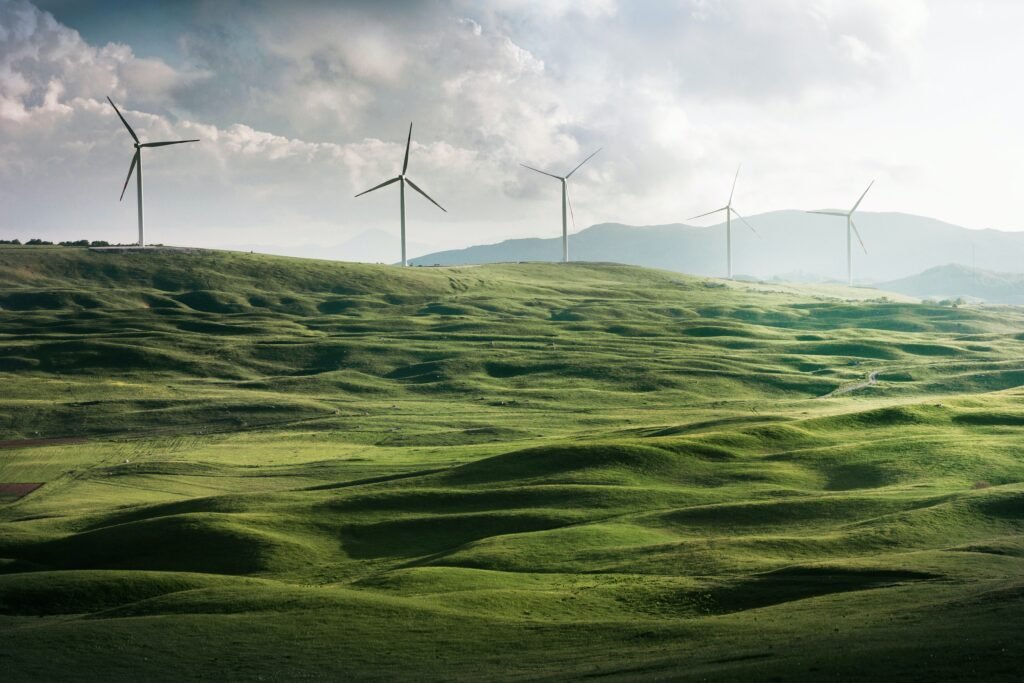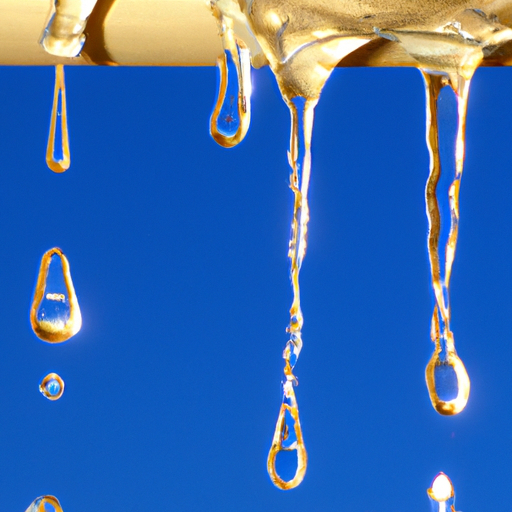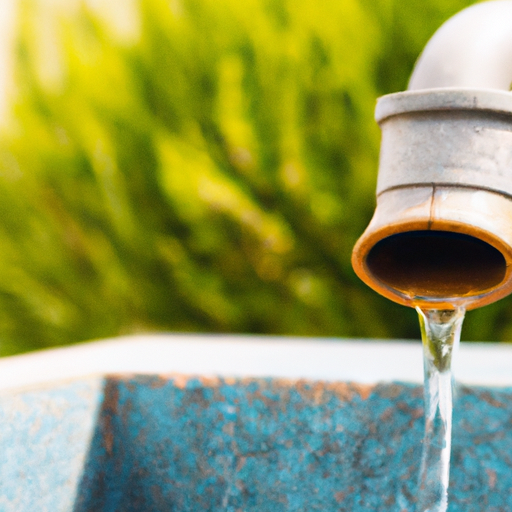Benefits Of Rainwater Collection Systems:
August 17, 2023 | by rainwatercollectionsystem.com

Are you looking for a sustainable water solution that not only benefits the environment but also saves you money? Look no further than Rain Water Collection System. Our expert team specializes in designing, installing, and maintaining innovative rainwater collection systems that seamlessly integrate into your property. By harnessing the power of nature, our systems capture rainwater for various uses, reducing reliance on traditional water sources and contributing to water conservation. With lower utility bills and a smaller carbon footprint, you can enjoy the benefits of a greener and more sustainable water future with us. Join us in making a positive impact on the environment while maximizing the efficiency of your water utilization. Rainwater collection systems offer a multitude of benefits that make them a worthwhile investment for both residential and commercial properties. From water conservation and cost savings to environmental sustainability and increased property value, these systems provide a range of advantages that contribute to a greener and more sustainable future. Let’s explore each benefit in detail:

1. Water Conservation
1.1 Reduce Water Demand
By incorporating a rainwater collection system into your property, you can significantly reduce your dependence on traditional water sources. Instead of solely relying on municipal water supplies, you can harness the natural resource of rainwater for various non-potable uses, such as watering your garden or flushing toilets. This reduction in water demand helps to conserve precious water resources and protects against droughts and water shortages.
1.2 Preserve Natural Water Sources
Rainwater collection systems also help to preserve natural water sources, such as rivers, lakes, and groundwater. By reducing the amount of water drawn from these sources, especially during dry seasons, we can maintain healthier ecosystems and prevent the depletion of water reserves. This is particularly important in areas where water scarcity is a pressing issue.
1.3 Mitigate Water Shortages
Water shortages are a growing concern in many parts of the world, and rainwater collection systems offer a practical solution to this problem. During periods of drought or when municipal water supplies are limited, having access to a backup supply of rainwater ensures a reliable source of water for essential needs. This can be especially crucial for agricultural purposes, ensuring the survival of crops and livestock.
2. Cost Savings
2.1 Lower Utility Bills
One of the most significant advantages of rainwater collection systems is the potential for cost savings on your utility bills. By utilizing rainwater for various purposes, you can significantly reduce your reliance on treated water, which is typically supplied by municipal water systems. This reduction in water consumption translates to lower water bills, providing long-term cost savings.
2.2 Reduced Dependence on Water Suppliers
In addition to saving on utility bills, rainwater collection systems also offer the advantage of reduced dependence on water suppliers. During times of price increases or water shortages, you won’t be as heavily reliant on these suppliers for your water needs. This independence provides a sense of security and control over your water supply.
2.3 Potential Rebates and Incentives
Many governments and utilities offer rebates and incentives for installing rainwater collection systems. These financial incentives aim to encourage individuals and businesses to adopt sustainable water practices and contribute to water conservation efforts. By taking advantage of these programs, you can not only benefit from the cost savings of a rainwater collection system but also receive additional financial support.
3. Environmental Sustainability
3.1 Reduce Energy Consumption
Rainwater collection systems contribute to environmental sustainability by reducing energy consumption associated with water treatment and distribution. Collecting rainwater directly from rooftops eliminates the need for pumping and treating water from distant sources, reducing the carbon footprint associated with water supply systems. This energy reduction helps mitigate climate change and promote a more sustainable future.
3.2 Minimize Stormwater Runoff
Another environmental benefit of rainwater collection systems is the ability to minimize stormwater runoff. When heavy rainfalls occur, stormwater runoff can result in soil erosion, water pollution, and overwhelmed sewer systems. By capturing and storing rainwater, you not only reduce the strain on these systems but also help prevent contaminants from entering natural water sources, preserving water quality.
3.3 Decrease Water Pollution
Rainwater collection systems play a crucial role in decreasing water pollution. Stormwater runoff often carries pollutants, such as pesticides, fertilizers, and oils, into rivers, lakes, and oceans, harming aquatic life and ecosystems. By intercepting and storing rainwater, you can prevent these pollutants from entering natural water sources, thus protecting the environment and promoting cleaner waterways.
4. Self-Sufficiency
4.1 Reliable Water Supply
One of the key benefits of rainwater collection systems is the assurance of a reliable water supply. Regardless of external factors such as droughts or water supply disruptions, your rainwater collection system can provide a consistent source of water for various uses. This reliability is particularly valuable in rural areas or locations with limited access to municipal water systems.
4.2 Independence from Municipal Water Systems
By investing in a rainwater collection system, you gain independence from municipal water systems. This independence allows you to have control over your water supply, ensuring that your needs are met even during periods of high demand or water restrictions. It also provides peace of mind knowing that you have a self-sustaining water source readily available.

5. Drought Resilience
5.1 Access to Water during Droughts
Droughts can have devastating impacts on communities, agriculture, and the environment. Rainwater collection systems offer a valuable solution by providing access to water, even during drought conditions. With a stored reserve of rainwater, you can continue to meet essential water needs without depleting natural water sources or straining municipal supplies.
5.2 Water Security
Water security is a significant concern in regions prone to water scarcity. Rainwater collection systems contribute to water security by ensuring a consistent water supply, regardless of external factors. This is particularly valuable for industries that require large amounts of water, such as agriculture or manufacturing, as they can maintain operations and minimize disruptions during times of water scarcity.
6. Improved Water Quality
6.1 Filtering and Purifying Effects
Rainwater collected from rooftops often has fewer contaminants compared to other water sources, such as rivers or groundwater. The collection process typically involves filtering and purifying the water, removing debris, leaves, and other pollutants. As a result, the water stored in rainwater collection systems tends to have higher quality, making it suitable for various non-potable uses.
6.2 Reduction in Chemical Contaminants
Compared to treated water from municipal systems, rainwater collected from rooftops can have lower levels of chemical contaminants, such as chlorine or fluoride. This reduction in chemical exposure provides health benefits, particularly for non-potable uses like irrigation or laundry, where chemicals may affect the quality of soils or fabrics. It also contributes to a safer and more eco-friendly water supply.

7. Versatile Applications
7.1 Landscape Irrigation
Rainwater collection systems are ideal for landscape irrigation, providing a sustainable and cost-effective water source for watering gardens, lawns, and plants. The use of rainwater for irrigation reduces the demand for treated water, conserves resources, and promotes healthier plant growth.
7.2 Toilet Flushing
Flushing toilets accounts for a significant portion of water usage in residential and commercial buildings. By utilizing rainwater for toilet flushing, you can greatly reduce your water consumption and contribute to water conservation efforts. This application is especially beneficial in high-traffic areas, such as office buildings or educational institutions.
7.3 Laundry
Rainwater can also be used for laundry purposes, providing a greener alternative to traditional water sources. By using rainwater to wash clothes, you not only conserve water but also minimize exposure to chemicals found in treated water, enhancing the longevity of your garments and promoting a more sustainable laundry routine.
7.4 Vehicle Washing
Rainwater collection systems can also be utilized for vehicle washing, whether it’s for personal cars or commercial fleets. By using rainwater instead of treated water, you can reduce water consumption and prevent pollutants from entering waterways through runoff. This application is particularly relevant for car wash businesses aiming to adopt sustainable practices.
7.5 Livestock Watering
In agricultural settings, rainwater collection systems provide an efficient and reliable source of water for livestock watering. By utilizing rainwater for this purpose, farmers can ensure their animals have access to clean water while reducing the demand on traditional water supplies. This promotes the well-being of livestock and contributes to sustainable farming practices.
8. Reduced Stormwater Management
8.1 Less Strain on Sewer Systems
Rainwater collection systems help alleviate the strain on sewer systems during heavy rainfall events. By collecting and storing rainwater on-site, you reduce the amount of stormwater runoff entering sewer systems. This reduction can prevent flooding and sewer overflows, benefitting both municipal infrastructure and the local community.
8.2 Minimize Soil Erosion
During intense rainstorms, excess stormwater runoff can cause soil erosion, resulting in the loss of fertile topsoil and damage to the ecosystem. Rainwater collection systems help minimize soil erosion by capturing and redirecting the water to storage tanks or infiltration areas. This allows the water to gradually enter the soil, reducing its erosive impact and promoting soil health.

9. Increased Property Value
9.1 Eco-Friendly Feature
The installation of a rainwater collection system adds an eco-friendly feature to your property, enhancing its value and appeal. In today’s environmentally conscious society, potential buyers or tenants view properties with sustainable features more favorably. A rainwater collection system showcases your commitment to responsible water usage and positions your property as a forward-thinking and attractive investment.
9.2 Attraction for Sustainable Buyers
Sustainable buyers actively seek properties that align with their values and allow them to live a more eco-friendly lifestyle. By having a rainwater collection system installed, you attract this niche market of environmentally conscious individuals who prioritize sustainability. This can translate into increased demand and competition for your property, potentially leading to higher selling or rental prices.
10. Contribution to Green Building Certification
10.1 LEED Certification
LEED (Leadership in Energy and Environmental Design) certification is a globally recognized standard for green buildings. Rainwater collection systems contribute towards LEED certification by fulfilling criteria related to water efficiency, sustainable site design, and innovation in design. By incorporating a rainwater collection system into your building, you can earn valuable points towards achieving LEED certification, further demonstrating your commitment to sustainability.
10.2 Green Star Certification
Green Star certification is another recognized green building rating system, primarily used in Australia. Rainwater collection systems help meet the requirements for Green Star certification, particularly in the categories of water efficiency, sustainable materials, and environmental management. By attaining Green Star certification, your building is recognized for its sustainability features, which can attract tenants or buyers who prioritize environmentally responsible spaces.
In conclusion, rainwater collection systems provide numerous benefits that contribute to a more sustainable and efficient water future. From conserving water and reducing costs to promoting environmental sustainability and increasing property value, these systems offer a comprehensive solution for water management. By harnessing the power of rainwater, you can make a positive impact on the environment while enjoying the practical advantages of efficient water utilization. Experience the benefits of a greener and more sustainable water future with [Your Company Name]. Join us in making a difference while embracing the advantages of rainwater collection systems.
RELATED POSTS
View all





